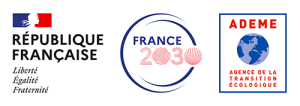From June 3 to 13, 2025, the Sud region becomes the global epicenter of ocean-related issues. Nice and Monaco will host five major international events, bringing sustainable water solutions back to the core of climate, economic, and geopolitical strategies. Seawards is closely following this sequence, which reinforces the systemic and territorial approach we advocate.
Five key events, one shared trajectory : from warning to impact
The One Ocean Science Congress, the Coalition for Coastal Resilience, the Blue Economy and Finance Forum, World Ocean Day, and the United Nations Ocean Conference (UNOC) form a rare and coherent sequence. Over the course of ten days, they will activate the three essential levers of a true blue transition: scientific production, political mobilization, and innovation financing.
This momentum draws a clear path forward: tackling water stress, managing freshwater sustainably, and adapting coastal territories must be approached together. Sustainable desalination technologies, decentralized freshwater production models, and biomimetic solutions must be part of an intersectoral approach, at the crossroads of environment, public health, energy, and urban planning.
Water innovation: a new global roadmap
The upcoming discussions on blue finance, coastal resilience, and water governance reinforce a now-central message: solutions must demonstrate their environmental efficiency, technological robustness, and ability to integrate into local value chains.
In short, it’s no longer about promises – it’s about proof. For innovation players, the challenge is twofold: to demonstrate the maturity of their technologies and to prove their ability to meet concrete needs in varied contexts – whether island-based, urban, agricultural, or industrial. This shift in expectations is driving the development of scalable, resilient solutions that are aligned with long-term climate goals.
Unprecedented water pressure
More frequent droughts, rising sea levels, and saltwater intrusion into aquifers are making the need for new approaches more urgent each year. By 2030, 40% of the world’s population will be exposed to severe water stress, according to UNESCO. At the same time, 60% of coastal infrastructures are considered vulnerable to climate change impacts.
Next-generation desalination technologies — more energy-efficient, more respectful of marine ecosystems, and adaptable to small-scale deployment — are part of the expected solutions. However, their rollout must be deeply integrated into existing water management policies, regulatory frameworks, and local socio-economic dynamics.
Aligning science, policy, and industry is essential
Seawards is developing its solutions in line with the direction set by these events: a water transition grounded in reality, co-constructed with local stakeholders, and compatible with planetary boundaries.
This convergence of scientific, political, and financial agendas confirms that freshwater can no longer be seen as just a resource. It has become a matter of sovereignty, security, and international cooperation. The Mediterranean region, particularly exposed to climate, geopolitical, and water tensions, is emerging as a critical testing ground for the innovations of tomorrow.
A strong signal to solution providers
The five highlights of this June send a clear message to innovators: expectations are now global, but solutions must be local. The era of the lab-based prototype is coming to an end. What now makes the difference are real-world demonstrators, multi-stakeholder cooperation, and the ability to contribute to a regenerative blue economy.
Seawards is following this path, developing a desalination technology designed to adapt to the constraints of each territory. This model, built on sobriety, simplicity, and impact, resonates with the international priorities emphasized throughout this sequence.
